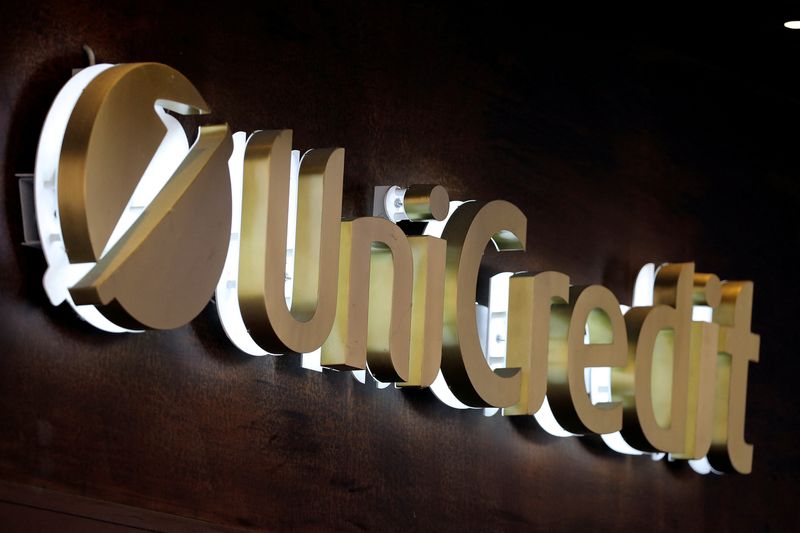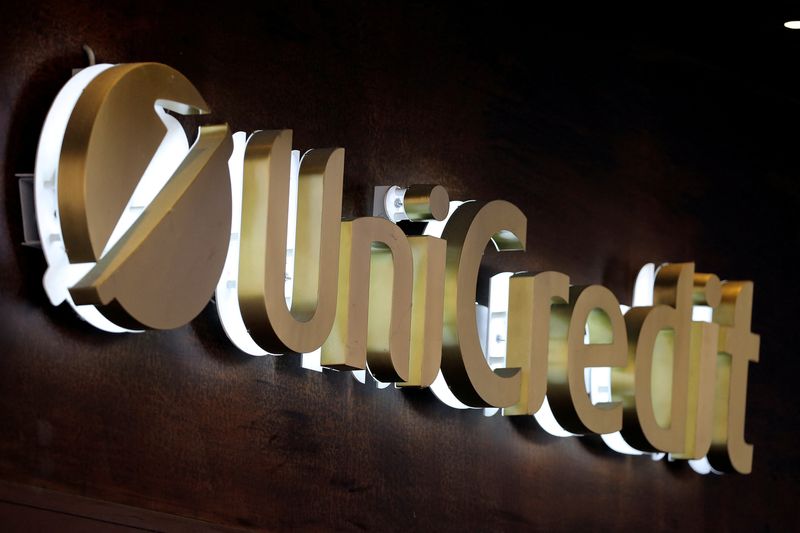
By Gianluca Lo Nostro and Philippe LeroyBeaulieu
(Reuters) – Shares in European banks continued their upward trend on Thursday, mostly driven by the read-across from UniCredit’s sweep to buy a 9% stake in Germany’s Commerzbank (ETR:CBKG) a day earlier.
The banking sub-index of the pan-European STOXX 600 was 1.9% higher by 1010 GMT, as analysts flagged increased prospects for mergers and acquisitions (M&A) in the sector.
ABN Amro was leading the gains with a 4 rise after the Dutch government reduced its stake in the country’s second-largest lender to 40.5% from 49.5% on Wednesday. Italy’s Banco BPM and France’s Societe Generale (OTC:SCGLY) also saw their shares rise by 3.7% and 2.7% respectively.
All three are seen as potential subjects for further M&A, analysts said.
ING said in a research note that Unicredit (BIT:CRDI)’s expansion abroad could spark interest in smaller European banks such as ABN, while J.P.Morgan wrote that banks historically viewed as M&A targets were likely to see a boost to their valuations.
UniCredit might still be open to M&A within its domestic market, J.P.Morgan said, highlighting the Italian lender’s past interest in smaller rival BPM.
Societe Generale is another acquisition candidate, according to J.P.Morgan and Morningstar analysts.
“The market views SocGen and ABN Amro as takeover targets. They trade at discounts to their peers, making them more affordable options, and the absolute size of their market value makes them digestible for potential acquirers,” Morningstar analyst Johann Scholtz said.
The Commerzbank transaction could trigger a series of unprecedented takeovers within the industry as European banks find themselves in a strong cash position after years of rising interest rates, and with their shares trading at multi-year highs.
However, varying regulations and stringent labour laws may impede cross-border mergers in the fragmented EU banking sector. Past M&A deals in Europe were usually executed in crisis situations, leading to slower consolidation among credit institutions.
“We need structural change in Europe with its 4,900 banks and 1,300 in Germany alone, reiterating our constructive view on the banking sector,” J.P.Morgan said.

